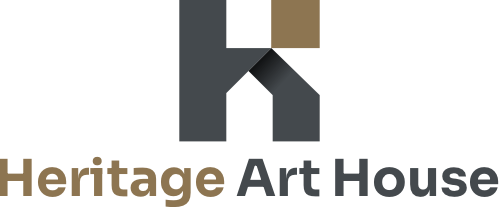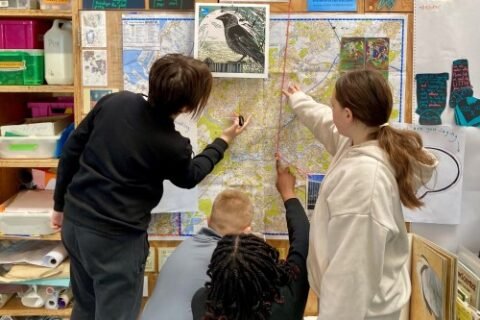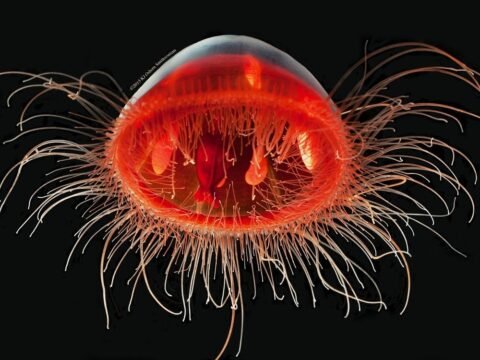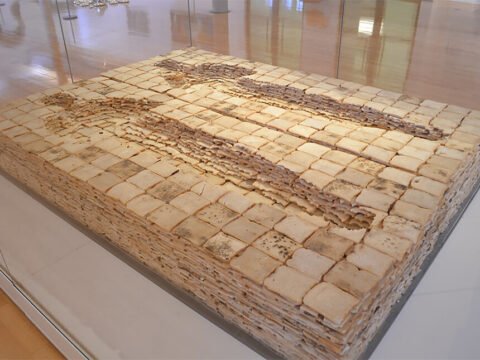The annual Art History Festival returns across the UK this September for its 5th year, working with more than 100 partners to celebrate and champion those who study and research art history, and showing art can be enjoyed by everyone, everywhere for absolutely free.
The theme of the 2025 festival is art’s close relationship with nature and how this can be a key factor in improving people’s well-being and mental health. It will showcase the power of art and nature together, and its ability to heal, uplift and rejuvenate individuals and communities.
Drawing on cultures from around the world, from Chinese calligraphy to contemporary eco-art, it will explore how art from around the world responds to themes relating to the natural world.
Between Monday 15th September – Sunday 21st September, partners in all nations and regions of the UK will deliver talks from leading artists and historians, hands-on workshops, tours through exhibitions and outside spaces, and panel discussions. Every event is totally free to the public.
Organised by the Association for Art History, the festival seeks to both engage new people with the richness of art, design and architecture as well as promote the important work of those who study visual and material art and work with collections who make the art experiences that we all enjoy.
Since its inception in 2001, the festival has continued to grow at an incredible pace, engaging with five times as many attendees last year since its inaugural year. In September 2024, 18,500 people enjoyed the free events with a mixture of in-person and online programming.
Gregory Perry, Chief Executive, Association for Art History said
“I’m delighted to see the Art History Festival continue to grow and return for its fifth year. It’s a fantastic demonstration of how art history connects people–through ideas, objects and stories–and how it can illuminate the world around us. As the only one of its kind in the UK, the Festival offers a unique opportunity to celebrate and take part in the inspiring work that organisations and people in the arts produce for audiences across the UK.“
The festival operates UK-wide, from culture-rich cities to rural towns, from Orkney to Penzance…
The 2025 Festival is generously supported by the National Gallery Trust, and the Trafalgar Square Gallery will host a detailed audio description of Henri Rousseau’s mysterious and imaginative nature painting Surprised! alongside a new piece of music composed and performed by cellist Nina Plapp (Tuesday 16th September), as well as a curator talk through the exhibition Millet: Life on the Land (Friday 19th September). At the National Gallery’s Friday Late, art historian James Fox will speak about his new book Craftland chronicling the vanishing skills and traditions of rural Britain. Elsewhere, at London’s City Lit (Friday 19th September) artist Hew Locke will be in conversation with Will Gompertz to discuss themes of migration in his art.
In Scotland, Edinburgh’s Dovecot Studios will chart the history of textiles from William Morris to IKEA and how the natural world has been interpreted through magical patterns (Saturday 20th September). In Glasgow, Britain’s contribution to the Art Nouveau which placed the natural world at its centre, including Mackintosh and the Macdonald Sisters, will be explored in a talk at Kelvingrove Art Gallery and Museum (Wednesday 17th September).
In Conwy, an exhibition of 130 artists showcasing the beauty and diversity of the natural world, as well exploring the climate crisis and sustainability, will be shown at the Pensychnant Conservation Centre (Saturday 20th September).
An art tour of the Northern Ireland War Memorial Museum (Saturday 20th September) will focus on the healing power of nature in art from the Second World War.
And geography is no barrier, thanks to an extensive series of online events that can be joined from home. These include the National Galleries of Scotland hosting an online talk with environmental artist Kerry Morrison (Tuesday 16th September), The Courtauld Institute’s workshop exploring artists such as Constable, Turner and Monet and how they captured the light, colour and elements of the natural world first-hand (Saturday 20th September), a City Lit look at how non-human technologies have re-shaped the way we see nature (Monday 15th September) and a hour-long online lecture and Q&A offered by the V&A Academy on how the Impressionists revolutionised the way the world was captured through painting.
The Association for Art History will also be offering advice for young people seeking creative careers with a chance to hear from professionals on applying for jobs in the art world (Saturday 21st September).
Artist Hew Locke says
“Art history has been a pleasure in my life, but also an important part of my self-education in general, giving me an insight into many other cultures, past and present. It is not separate from politics or global history but is a view of history from a different angle.”
Full details and updates visit: festival.forarthistory.org.uk/events/
All events are free, but some require advanced booking due to limited places.
For art lovers, families with budding artists, and those wanting a deeper understanding of the art and nature around us, the Art History Festival offers an easy way to find, plan and organise your week of art with a full events listing on the website.
The Art History Festival is generously supported by the National Gallery Trust. The National Gallery has been a significant and most valued contributor to the festival programme since the event’s inception in 2021. The support of the National Gallery Trust, now in its second year, means that the festival remains free to attend and allows AAH to increase the profile and reach of the event, and of art history, ensuring that the ability to pay is not a barrier to taking part and engaging with our subject.
About
Through advocacy, events, networks, membership, grants and publications, the Association for Art History celebrates and promote the value of art history and visual culture today. It brings people together to share knowledge and inspire new ideas. It advances scholarship and professional practice through its programmes and publications, supporting a broad and diverse art history community. Together, they shape the future for art history. MORE: @forarthistory





